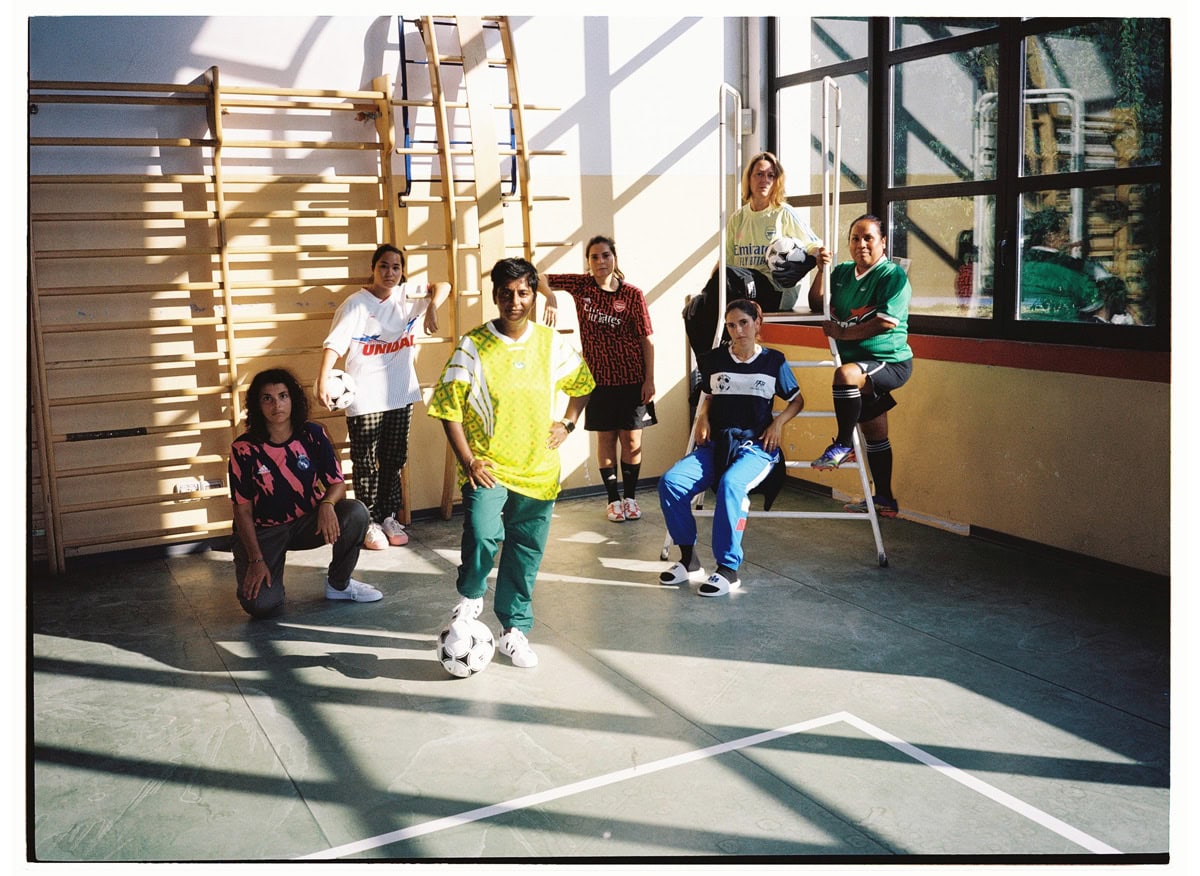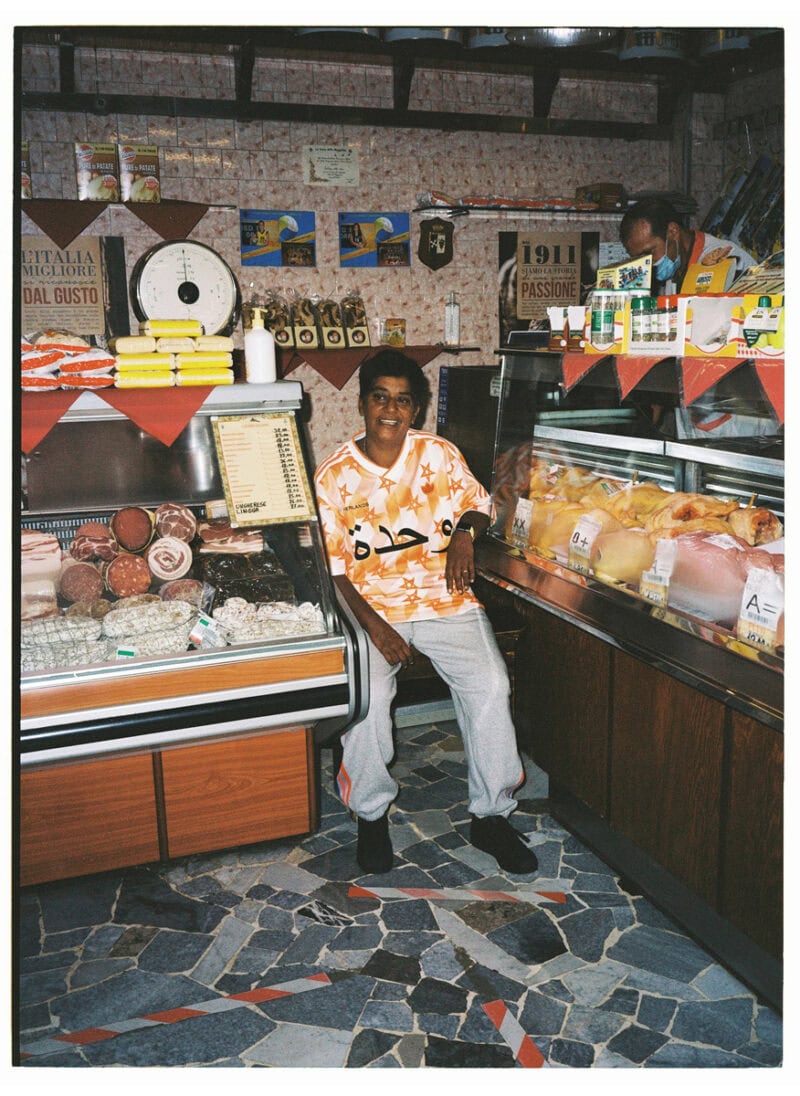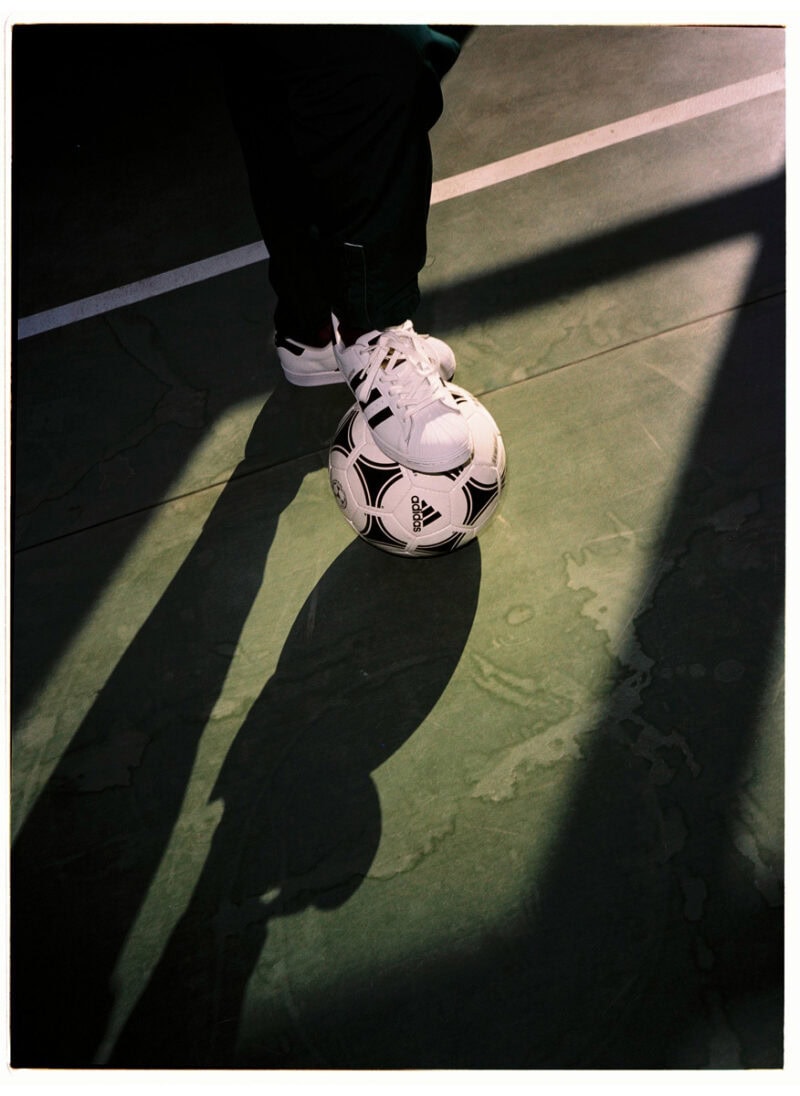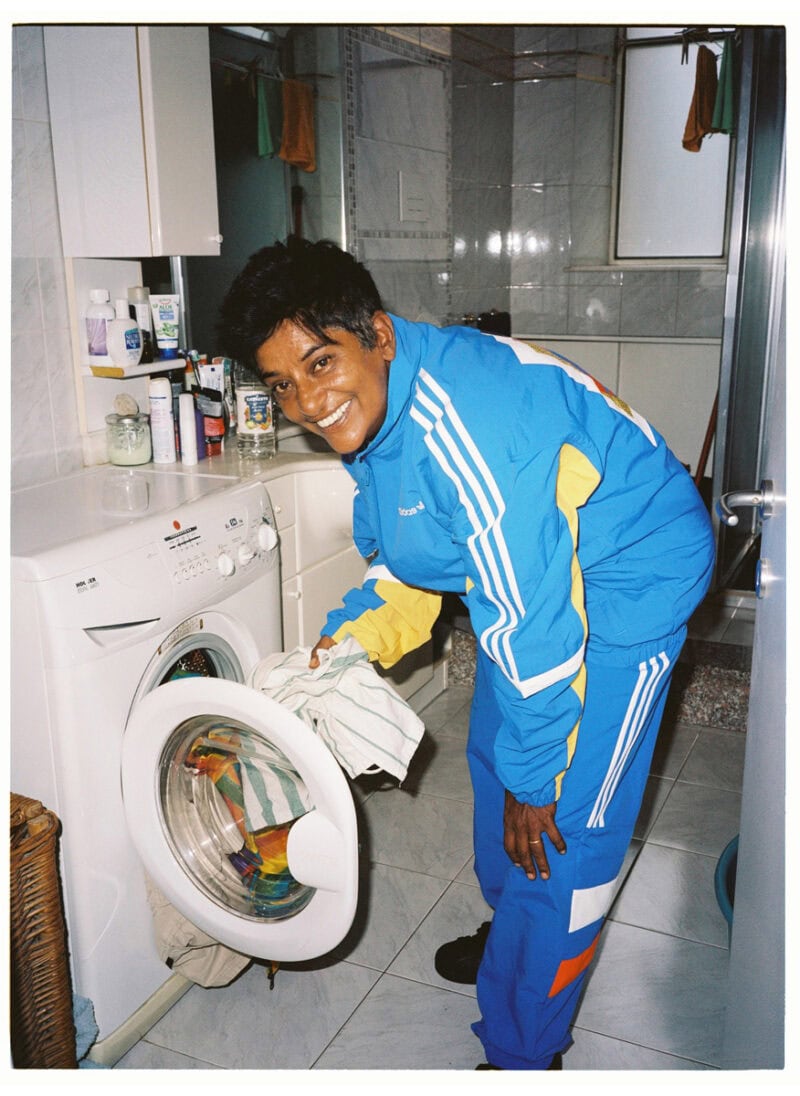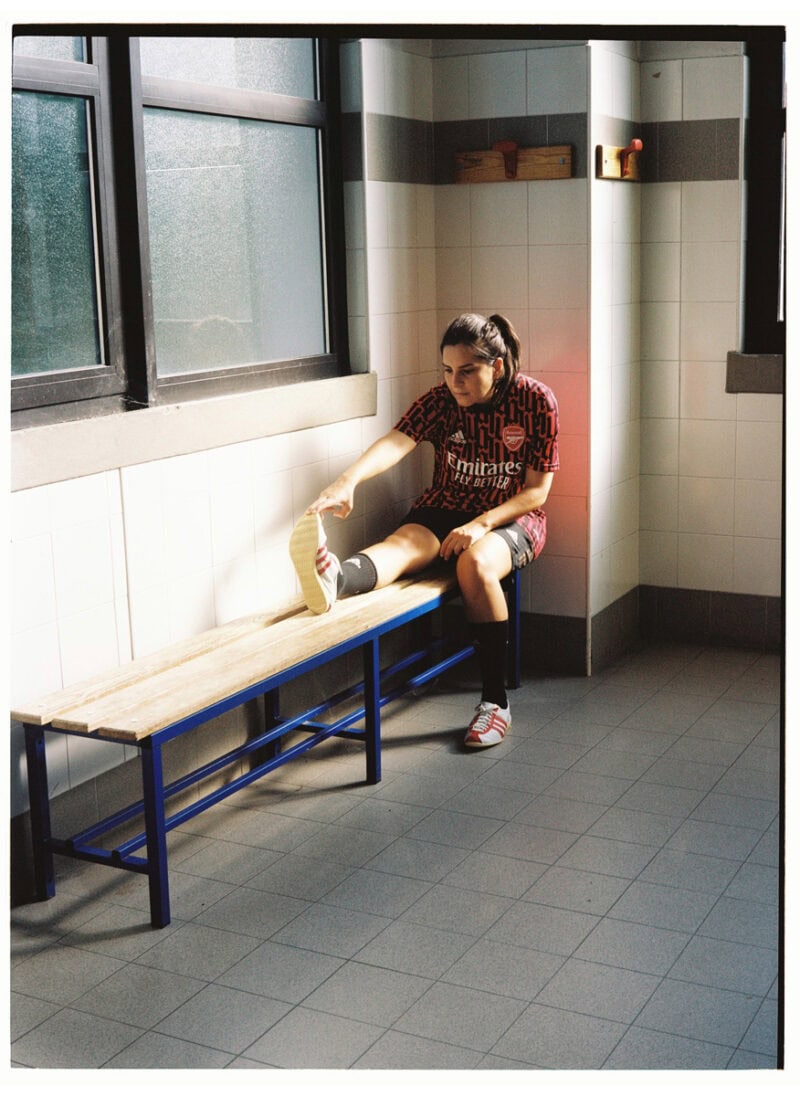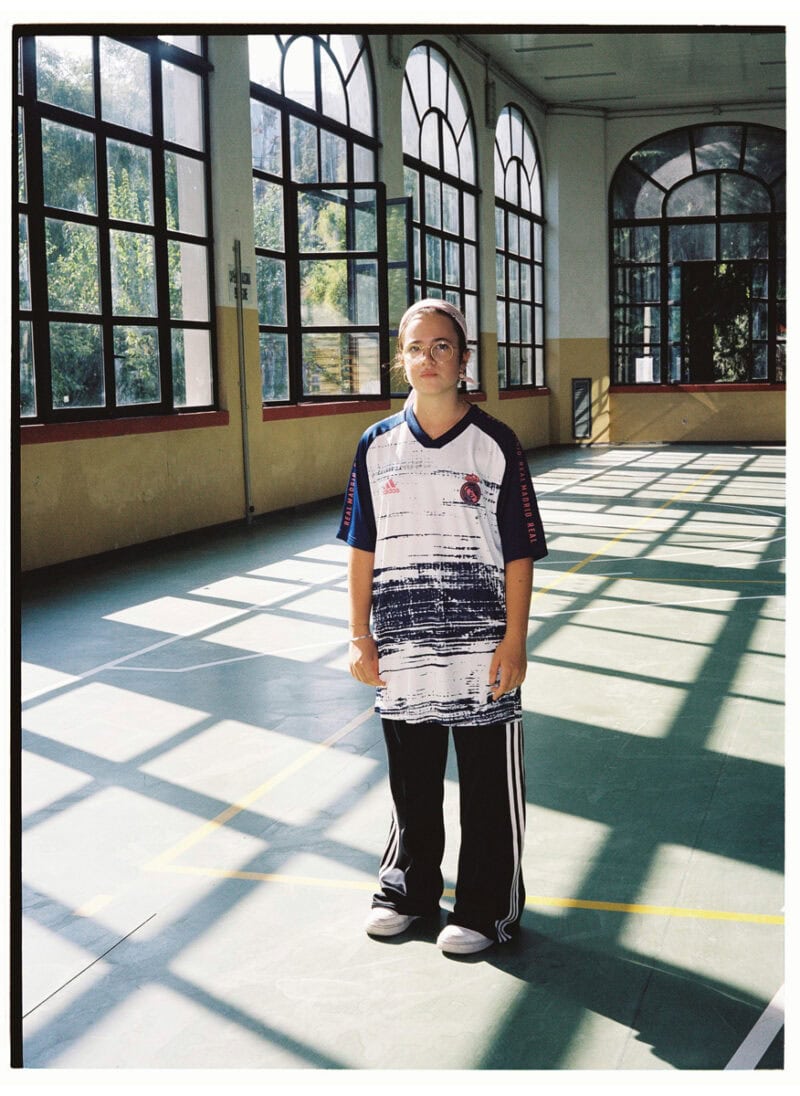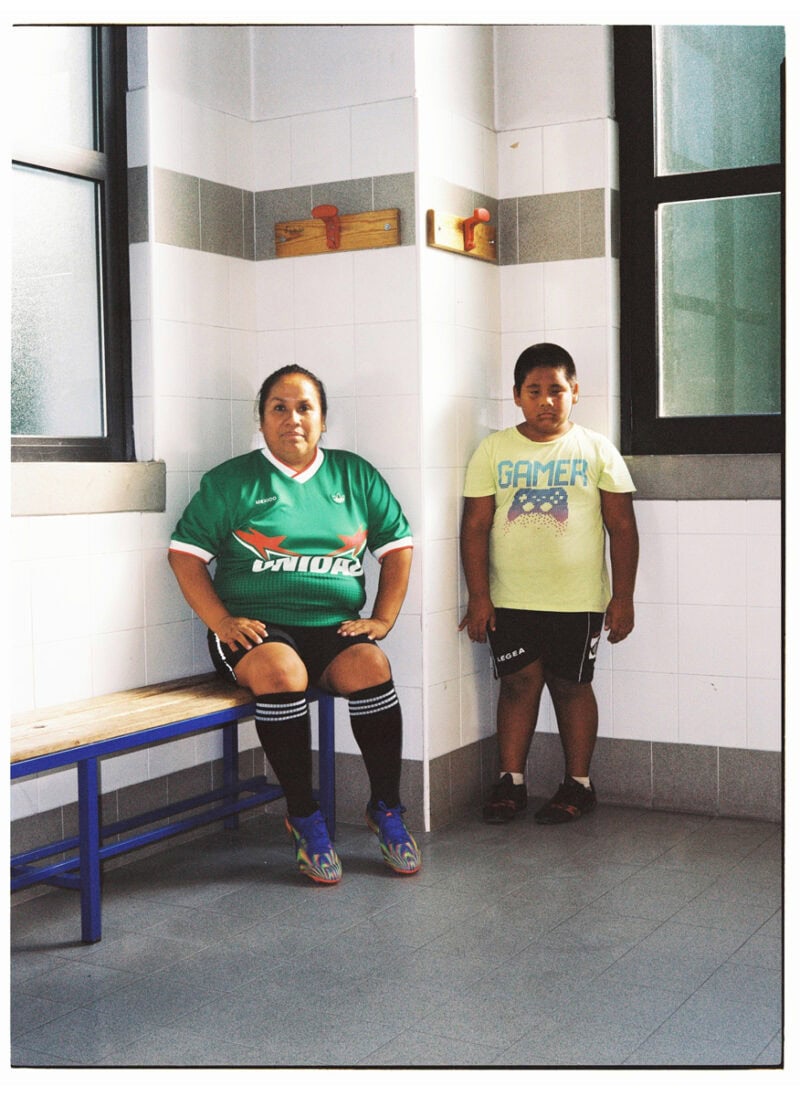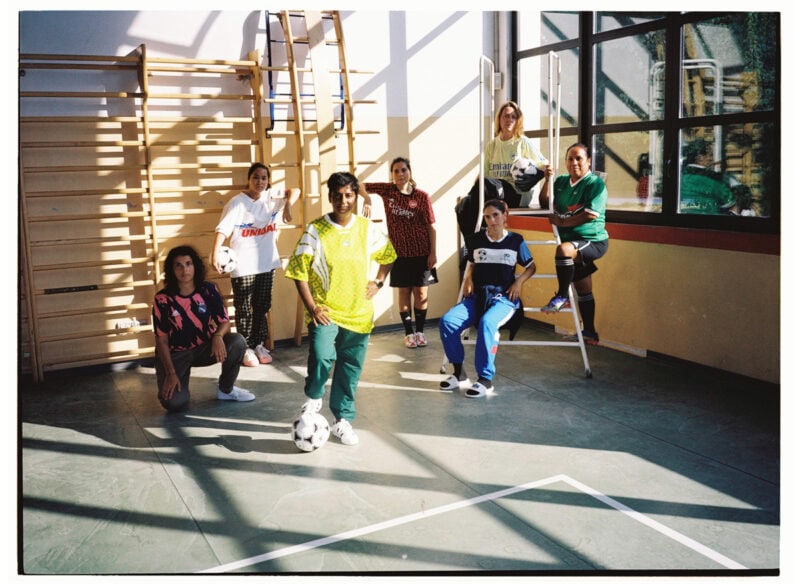In a neighborhood classified as high risk, Joanna Borella gives girls of all ages an opportunity to play football while having fun and learning about equality.
Joanna Borella started kicking ball at the same time she learned how to stand and walk upon her arrival in Italy in the late Sixties.
After spending the first year of her life in an orphanage in Bombay, Mister Jo – as she’s known in the multicultural neighborhood of Pasteur where she lives and operates in the north of Milan – was welcomed into her new family by two slightly older brothers who introduced her to the beautiful game. She was hooked. Football became an integral part of her daily life and over the span of five decades she became a household name in the local women’s football community thanks to her dedication to tearing down the conservative attitudes that were ruin the real essence of the game.
The area above Piazzale Loreto in the north of Milan, between Via Padova and Viale Monza – also known as NoLo in a botched attempt to rebrand and gentrify a neighborhood that already had a strong identity solely to appeal to a bourgeois press that would otherwise snub it – is home to a multitude of nationalities and is an intricate cultural melting pot.
The neighborhood is historically known for housing the Italian working class that migrated to the city in search of a better lifestyle and financial advancement after World War II, but over the years the early settlers were replaced by migrants coming from all corners of the Earth. Especially North Africa, South America and South East Asia.
The newcomers recreated the livelihoods of their own communities and countries of origin by opening ethnic shops, international food suppliers, and a multitude of diverse restaurants that would give any New York neighborhood a run for its money.
Walking down the infamous Via Padova, a name that still prompts many to tremble despite its recent resurgence, a warm feeling invades your soul.
Pungent whiffs of Chinese stir-fry inebriate your nostrils as loud Arabic chat mingles with energetic Caribbean tunes coming out of the colorful windows of the many local Peruvian restaurants to penetrate your eardrums and send you on atemporal mind trip.
No matter the weather, groups of friends of all ages can be found laughing on the sidewalk, drinking beer, and sharing jokes in their native language. The friendly corner-store owners – often of Bengali heritage – that supply the neighborhood with prismatic, fresh produce try to lure you into their space by vocally marketing their merchandise as the best you can find.
At night, the corners and bus stops are inhabited by bubbly Brazilian sex workers in succinct short dresses waiting for their shift to be over. At dawn, you can find them celebrating the night on the chipped green benches of the paved dog enclosure behind the luscious Parco Trotter.
This beautiful park is the HQ of Joanna’s admirable work. A local resident since 1990, it was after giving birth to her first son that Joanna found a community and support in the activities provided for families by the organization operating in the park.
At the time, the municipality was offering any families that could not afford nursery a free space to bond with their children up to the age of three.
Incited by her passion, Joanna used her time differently than other mothers. The hallways of the establishment temporarily became her stadium and, just like when she was a kid, she repurposed paper and tape to create a ball. Nothing could stop her from playing.
After dribbling in different areas of the city and always being the only woman in a team of 30 men, she felt the need to start her own project. She trained and qualified as a professional coach and in 2015 she founded Bimbe Nel Pallone. A female-only football association based on strong values that are vital to the upbringing of compassionate adults and assertive, buoyant, confident women.
For Joanna football is not “simply” a sport. It is an efficient tool for education, discipline, integration and equality. Her method is unique in its kind. It elevates the concept that football is for everybody. She is not afraid to reiterate her beliefs and stand her ground.
“Sometimes it has occurred to me that other clubs tried to recruit some of my girls. But I am the one that picks them up after school, brings them to practice, and then takes them home. All in the same neighborhood. Would other clubs do the same? I’m not sure,” she tells me over coffee at one of the newest cafés in the neighborhood. She picked it.
Recently Joanna added a category to the roster of her teams, the so called Nolers Mix. A mixed-gender team for high-schoolers.
“It’s crucial to teach boys that girls are equal and it’s even more important to show them they can co-exist on the same pitch to dismantle the archaic stereotypes that are perpetuated by society to this day,” she firmly states. “I tell them, I am a woman ain’t I? I am here coaching you and playing with you, right? So why should it be any different for the rest of the girls?” she continues. Joanna is petite but her spirit stands giant. Her raspy laugh is contagious and genuine and she’s proud of the safe environment she has created. As our conversation progresses, a few people stop to greet her. She smirks and tells me, “See, this is the reward for what I do. I might not get paid but that’s not important. The program is gaining traction and word is starting to spread. People recognize me as Mister Jo”.
The alias she sports so proudly was self-assigned in a coming-of-age moment during one of the few tournaments she signed up for.
The parents of the rival team kept on confusing the father of one of Joanna’s kids for the coach. “That was it, I decided in that moment that I would be printing MISTER JO in capital letters on the back of my track top,” she reveals. She hasn’t taken the jacket off since.
Mister Jo’s association offers local kids an affordable – often free – opportunity to stay active, for families that often cannot bear the hefty costs of gym or sports club subscriptions. The courses she offers cost less than €200 per year and the proceeds are mostly used to cover the price of a suitable pitch, training materials, and pins. In this sense, the organization is a non-profit as she gains nothing from it. This is something she prides herself upon as she strongly believes in the cause.
The youth are not the sole beneficiaries of Joanna’s passionate mission to bring football to all, in fact she’s managed to create a loyal group of moms that train with her twice a week, come rain or scorching hot sun.
The group is composed of eleven women of all ages and backgrounds who have become Joanna’s team in the most social iteration of the term. They are her support system. Together they laugh, talk about cleaning supplies, complain about their husbands, and drink beer. Bimbe Nel Pallone is a healthy escape from the mundane duties and sometimes dreadful realities of our lives. A moment to decompress, crack your joints, and learn how to score a penalty despite your age bracket, level of athleticism, or interest in the technicalities of the game.
Laps are not part of Joanna’s warm-up routine. She encourages her girls to interact with the ball from the get-go, to enjoy themselves, and consider football for its recreational qualities. She focuses on the long-lost art of the game of football where precise technique and advanced material is not needed as long as you are having fun.
She’s elated when her peers send her reassuring voice messages about how her program has changed their life for the better.
“Sometimes people ask me why I don’t police my players into traditional warm up exercises, for me the most important part is that everybody moves and touches the ball. For me it’s about transmitting a sense of equality and integration. The opportunity to be active through the use of football. So, I answer their question by saying: this is my method. If you are interested in sweating without having fun, there’s plenty of clubs that will juice you for your skills and let you go once you are tired. Go there.” She asserts this while rolling a cigarette. Clearly, brutal honestly is not something she’s lacking.
Bimbe Nel Pallone has become an institution in the neighborhood and more and more girls are turning to Joanna for her inclusive ways and transparent coaching.
Unfortunately, the pandemic has put a halt to the activities but Mister Jo is committed to finding alternative ways to work around the problem, like open-air training at the park or holding Zoom classes where she instructs the children to use anything around them as a tool for exercising. In the meanwhile, Joanna plays on her own or with her husband. She can’t rest a second. Over the summer, her active and rebellious ways caused her to slip on the wet sand of the beach she was vacationing at and break her wrist. Still, that didn’t stop her.
Now it’s September, Mister Jo’s arm is fully healed and she’s itching to get back to her games. Despite the restrictions on her activities, she’s not disheartened. Rather she’s working hard to find alternatives that will allow her programs to thrive and remain affordable.
Credits:
Words by Naomi Accardi
Photography by Leone
Directed by Luca A.Caizzi
Creative direction: Luca A. Caizzi, Leone Balduzzi and Nico Carassi
Line Producer: Alice Garbelli
Producer: Beatrice Lebrun
Styling: Aurora Zaltieri
Art Director: Carlo Banfi
Casting&Location: Alice De Santis and Isabella Petricca @furia.agency
Thanks to: Mr.Jo and “Le Bimbe nel Pallone”, Alessandro De Agostini, Michele Prevato, Ilaria Bonfiglioli, Giulia Polo
